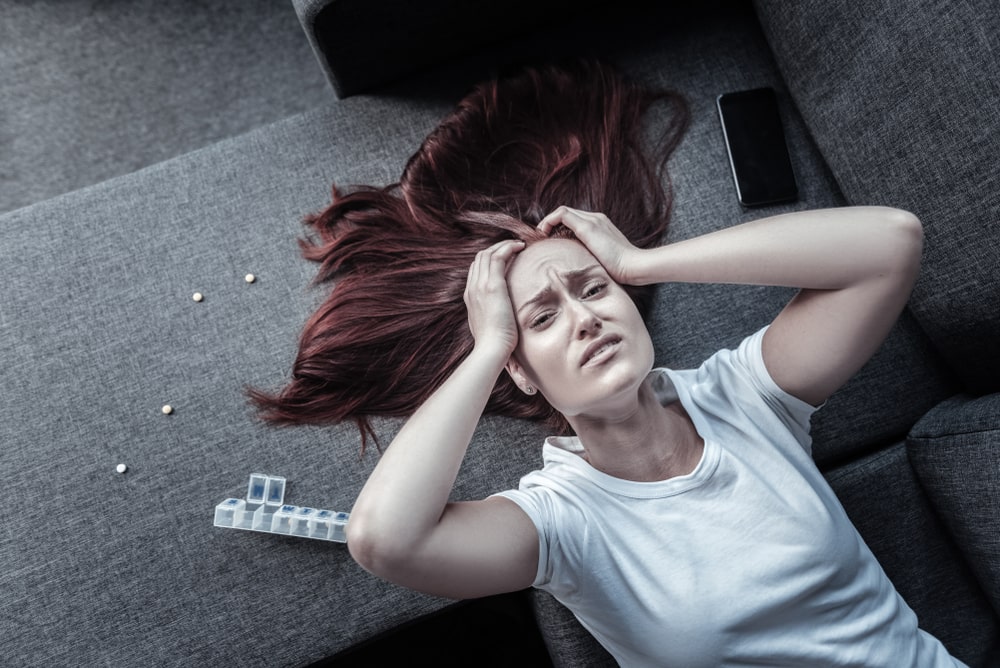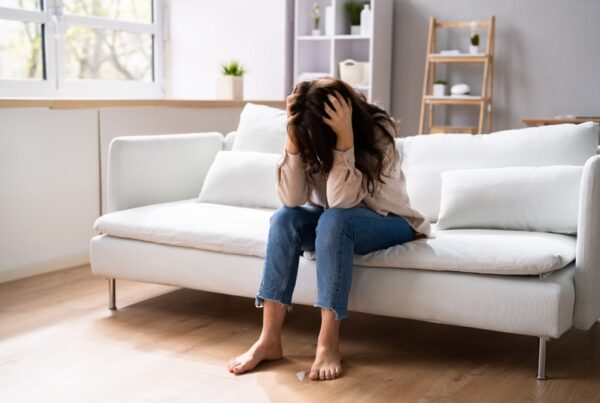Anxiety is a complex response to real or perceived threats that can involve cognitive, physical, and behavioral changes. It is the body’s natural response to stress and will manifest differently in everyone. Experiencing worry, fear, and stress is considered a normal part of life when it is occasional and temporary. However, when those acute emotional reactions become persistent, they can significantly interfere with daily living activities. According to the Anxiety and Depression Association of America, anxiety is the most common mental health problem in the United States. Over 40 million adults in America (approximately 19% of the country’s population) are affected by an anxiety disorder every year. Further, nearly all anxiety disorders co-occur with significant sleep abnormalities and vice versa.
Why Sleep Matters
Although anxiety triggers, or things that lead to an increase in one’s anxiety symptoms, are often unique to each person, certain factors are known to exacerbate anxiety, such as sleep deficits. Research suggests that anxiety may lead to a state of dysfunctional arousal which often results in persistent sleep-wake difficulties. Being sleep-deprived has been shown to lead to cognitive impairments, like increased impulsivity, poor judgment, or irritability, which is why prioritizing sleep in anxiety management is essential.
Research from the University of California, Berkeley, indicates that a sleepless night can produce up to a 30% rise in anxiety levels. The same study goes on to suggest “that insufficient sleep amplifies levels of anxiety and, conversely, that deep sleep helps reduce such stress.” Another study revealed that the quality and amount of sleep participants received from one night to the next predicted anxiety levels of the next day, with even subtle nightly sleep changes exhibiting an effect. Evidence indicates that “when one sleeps, the brain reorganizes and recharges itself, and removes toxic waste byproducts which have accumulated throughout the day.” Sleep provides the body’s neurons with an opportunity to shut down and repair themselves. Without sleep, neurons become increasing depleted and polluted, through normal cellular activities, that they begin to malfunction. Sleep increases protein production in cells that fuel growth and repair damage incurred by stress and other factors. Sleep plays a key role in regulating emotion, as good night’s sleep can significantly impact an individual’s stress levels and coping capacity.
The National Sleep Foundation created a chart that illustrates the ideal amount of sleep a person should obtain (ranging from infants into adulthood). The chart is broken up such that adults ideal sleep durations vary. Young adults between ages eighteen to twenty-five should be getting between seven to nine hours of sleep, nightly. Adults between the ages of twenty-six and sixty-four should also obtain between seven to nine hours of sleep. Adults older than sixty-five years of age are recommended to get between seven to eight hours of sleep, nightly. Healthy sleep hygiene practices can result in countless benefits and enhance one’s mental health. Therefore, prioritizing sleep as part of anxiety management is essential for overall well-being.
Treatment In Calabasas
Calabasas is a city in California. It is a well-known suburb of Los Angeles, located west of the San Fernando Valley and north of the Santa Monica Mountains. Over the past decade, the city of Calabasas has grown in its reputation for luxury as well as for privacy which makes it a hidden gem for residential living for society’s elite, and one of the most desirable destinations in Los Angeles County. It is also home to a plethora of highly qualified mental health clinicians providing an array of therapeutic services and treatment options.
The information above is provided for the use of informational purposes only. The above content is not to be substituted for professional advice, diagnosis, or treatment, as in no way is it intended as an attempt to practice medicine, give specific medical advice, including, without limitation, advice concerning the topic of mental health. As such, please do not use any material provided above to disregard professional advice or delay seeking treatment.




